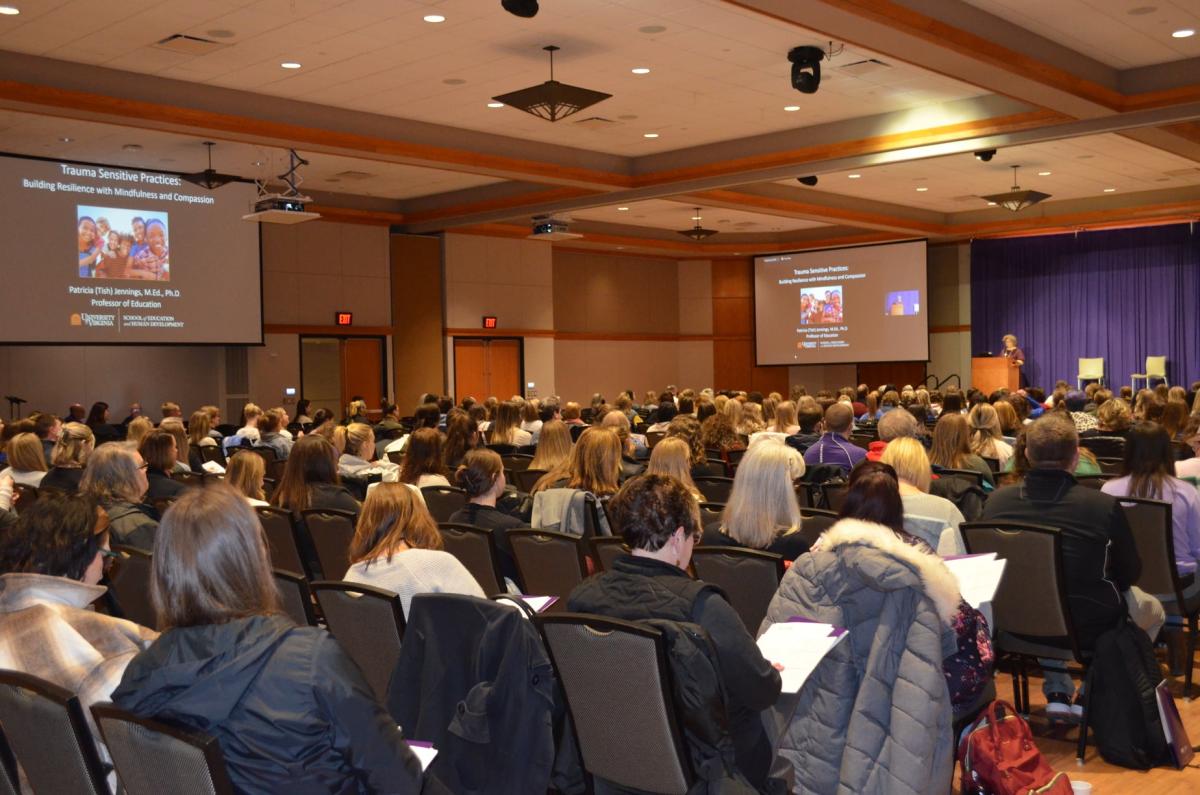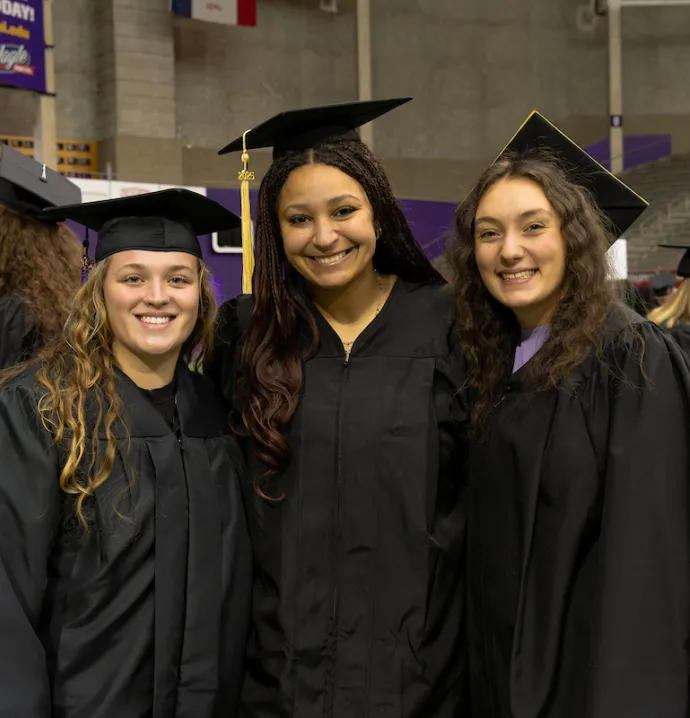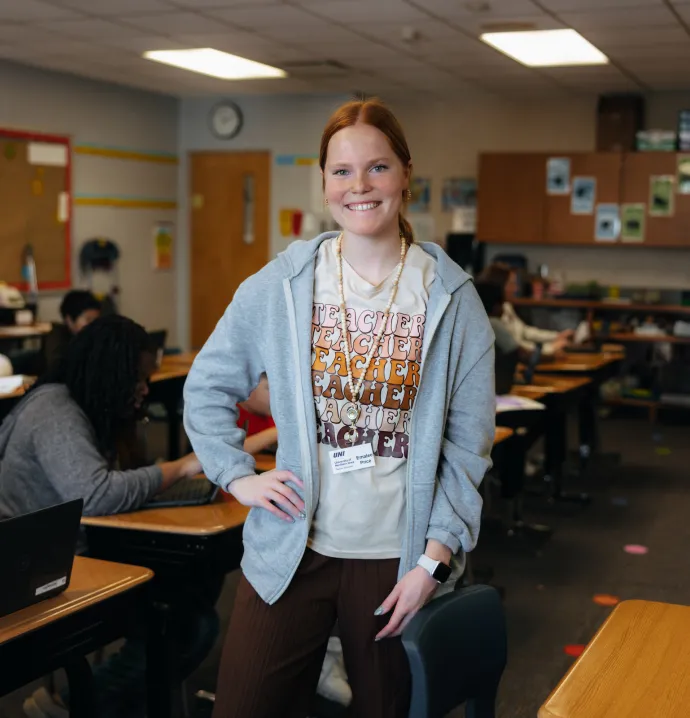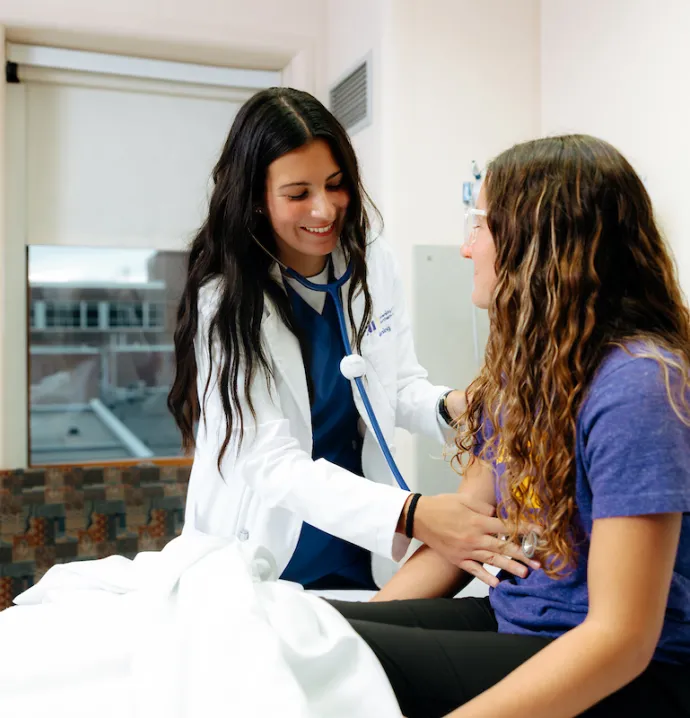UNI equips teachers with social and emotional learning education to help students
UNI equips teachers with social and emotional learning education to help students

While the pandemic may have further illuminated the emotional and mental health needs of children in school, the University of Northern Iowa’s work preparing teachers to help students in these areas started before the world went into lockdown.
Much of this work at UNI is being done through an increased emphasis on social and emotional learning (SEL). Back in January 2020, faculty and staff members from across campus including from the College of Social and Behavioral Sciences as well as the College of Education got together to brainstorm how to create a formal piece of curriculum focused on SEL. That formal curriculum — the social and emotional learning minor — will be offered for the first time in the fall of 2022.
“We started to see workshops on this topic popping up and realized the need that schools and educators had,” said Sarah Montgomery, professor of elementary education who was one of the faculty members behind the development of the SEL minor. “We wanted to respond to those needs by really making this an intentional piece of what we do here at UNI.”
Montgomery went on to say that SEL is “teaching in a way that supports a classroom rooted in care and connection.” Nicole Skaar, associate professor and coordinator for the UNI school psychology program, emphasizes that SEL helps both kids and adults work well with others.
According to the Collaborative for Academic, Social, and Emotional Learning, which was founded to establish social and emotional learning as a standard part of pre-K through 12 education, there are five components of SEL: self-awareness, self-management, social awareness, relationship skills and responsible decision making. The state of Iowa built its SEL competencies based on the CASEL framework.
Although it may seem like social and emotional learning is the latest buzzword in education, it isn’t actually a brand-new concept.
“We've been talking about social and emotional learning since the early 90s, but it wasn't as much of a focus,” said Skaar. “Our students, children and youth were struggling with mental health difficulties prior to the pandemic, but I think COVID definitely has increased awareness,”
Montgomery believes that UNI has been ahead of many other schools when it comes to dedicating an entire minor to this subject.
“I don't want to say we are the first, but we've got to be one of the first programs, at least in our state, to offer this as a minor,” she said.
The SEL minor will be available for both elementary and secondary education majors.
The minor builds on existing requirements for education majors and adds a social and emotional learning seminar, which will be offered for the first time in the fall. There are electives in areas such as conflict resolution, social psychology and even interpersonal forgiveness. Students must also participate in some external learning events such as workshops that are focused on school mental health or social and emotional learning.
“The teaching majors are already so, so big,” said Skaar. “We wanted the new minor to be an easy fit for their schedules while also being meaningful.”
Skaar believes this type of learning won’t only help educators navigate classroom difficulties, but it will also help many UNI-educated teachers get jobs.
“When students sit for interviews with principals, this is something they can absolutely talk up,” said Skaar. “When I’ve talked to principals in various places across the state, this is exactly what they're looking for.”
While student well-being is a crucial part of the curriculum, the social and emotional learning seminar will also focus on teacher well-being to help teachers work on their own social and emotional learning competencies.
“For so many years, students have said, ‘UNI prepares us so well, but this job is demanding. What more can you teach us about how to thrive?’” said Montgomery.
The coursework on teacher well-being is an answer to this very question.
The new minor builds on UNI’s long-standing commitment to school mental health, including having the state's leading school psychology program, housing the Center for Violence Prevention, supporting faculty research on school mental health, and working with Area Education Agencies on a grant to support growing the school psychology workforce. There will also be a UNI School Mental Health Conference in the fall.
In April, UNI also held its first Social and Emotional Learning Conference. Originally, the conference had been scheduled for 2021 but was delayed due to the pandemic. Now UNI is hoping to make the conference an annual event to educate teachers and school personnel on the importance of SEL.
With more than 700 educators, students and other professionals such as social workers initially registered — including for virtual-only sessions for keynote speakers — the conference was an enormous success. Keynote speakers included Patricia Jennings who is an international leader in the SEL space, mindfulness expert Susan Verde and author and illustrator Peter Reynolds. The conference also served as the launch event for the minor.
“At this point in time, every single educator that I interact with, formally or informally, will tell you that student needs regarding social and emotional learning must be prioritized,” said Montgomery.
Skaar believes social and emotional learning is also crucial for students’ success in the classroom as well as their ability to work well with others someday in the workforce.
“Kids don't learn the reading, writing, math, social studies and science that we are teaching if they are carrying all of these mental health and emotional difficulties,” said Skaar. “Even if it's not something diagnosable like anxiety or depression, when you lack well-being, you’re not learning. So that's why it is so important for teachers and other educational professionals to know how to react and how to teach social, emotional and behavioral skills.”
UNI is hoping the conference will become a space where current and future educators can continue to discuss the importance of social and emotional learning, share ideas and support one another.
“I think educators that were at the conference were just so inspired and hopeful after they had a chance to connect with one another and know that they are not alone in wanting to use this work to create change in their classrooms and in their communities,” said Montgomery.




